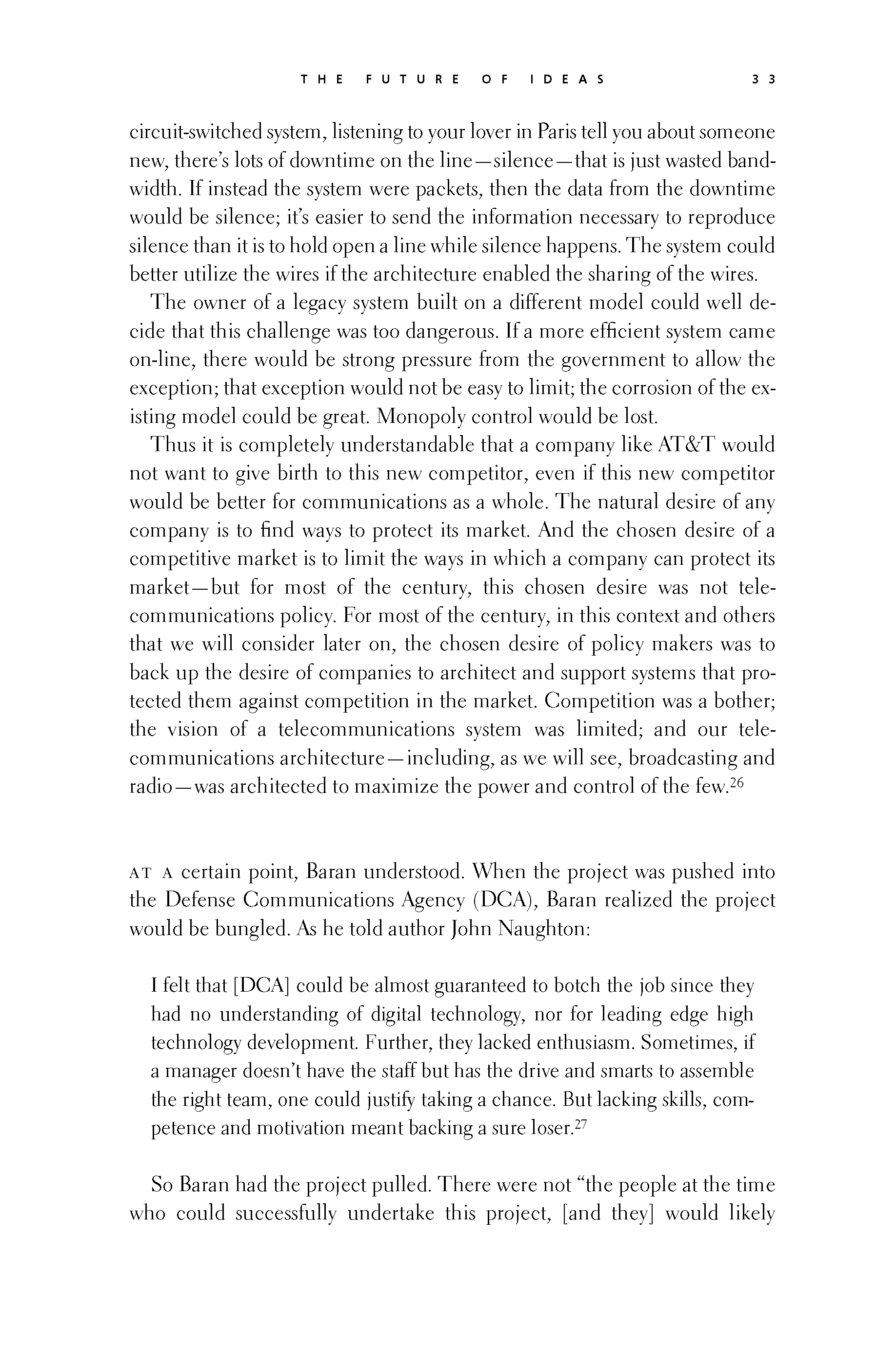 p032 _
-chap- _
toc-1 _
p033w _
toc-2 _
+chap+ _
p034
p032 _
-chap- _
toc-1 _
p033w _
toc-2 _
+chap+ _
p034
circuit-switched system, listening to your lover in Paris tell you about someone
new, there's lots of downtime on the line -- silence -- that is just wasted band-
width. If instead the system were packets, then the data from the downtime
would be silence; it's easier to send the information necessary to reproduce
silence than it is to hold open a line while silence happens. The system could
better utilize the wires if the architecture enabled the sharing of the wires.
The owner of a legacy system built on a different model could well de-
cide that this challenge was too dangerous. If a more efficient system came
on-line, there would be strong pressure from the government to allow the
exception; that exception would not be easy to limit; the corrosion of the ex-
isting model could be great. Monopoly control would be lost.
Thus it is completely understandable that a company like AT&T would
not want to give birth to this new competitor, even if this new competitor
would be better for communications as a whole. The natural desire of any
company is to find ways to protect its market. And the chosen desire of a
competitive market is to limit the ways in which a company can protect its
market -- but for most of the century, this chosen desire was not tele-
communications policy. For most of the century, in this context and others
that we will consider later on, the chosen desire of policy makers was to
back up the desire of companies to architect and support systems that pro-
tected them against competition in the market. Competition was a bother;
the vision of a telecommunications system was limited; and our tele-
communications architecture -- including, as we will see, broadcasting and
radio -- was architected to maximize the power and control of the few.[3-26]
///\\\
At a certain point, Baran understood. When the project was pushed into
the Defense Communications Agency (DCA), Baran realized the project
would be bungled. As he told author John Naughton:
____ I felt that [DCA] could be almost guaranteed to botch the job since they
____ had no understanding of digital technology, nor for leading edge high
____ technology development. Further, they lacked enthusiasm. Sometimes, if
____ a manager doesn't have the staff but has the drive and smarts to assemble
____ the right team, one could justify taking a chance. But lacking skills, com-
____ petence and motivation meant backing a sure loser.[3-27]
So Baran had the project pulled. There were not "the people at the time
who could successfully undertake this project, [and they] would likely
[[33]]
p032 _
-chap- _
toc-1 _
p033w _
toc-2 _
+chap+ _
p034